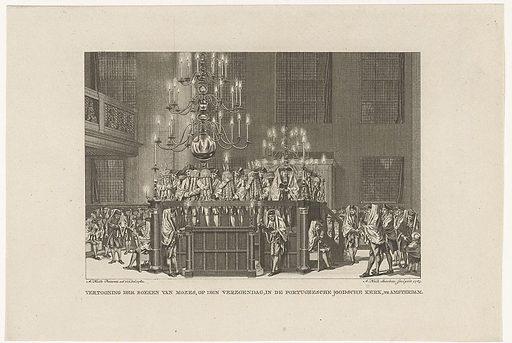Once upon a time, history was consigned to the confines of dusty books and gray lectures, holding court in the minds of academics and the occasional history enthusiast. But then something extraordinary happened. In an era where screens reign supreme, historical films and TV shows slithered their way into our living rooms, captivating audiences with their enthralling narratives and transporting us to worlds long gone. From the silver screen to streaming platforms, the popularity of these captivating portrayals of the past has grown like wildfire, leaving an indelible mark on the collective consciousness. Today, we delve into the mesmerizing realm of historical films and TV shows, unveiling their immense popularity and exploring their lasting legacy. Join us on this journey through time, where history meets Hollywood, and discover how these creations act as cultural touchstones, shaping our understanding of the past.
Historical films and TV shows have long captivated audiences with their portrayal of significant events, figures, and eras from the past. These screen adaptations not only entertain but also educate viewers, offering a glimpse into different time periods and cultures. Their popularity has stood the test of time, with numerous classics and contemporary productions leaving a lasting legacy on both the big and small screens.
One of the reasons for the enduring popularity of historical films and TV shows is the way they transport viewers to different worlds, allowing them to immerse themselves in fascinating time periods. Whether it’s the opulence and intrigue of the medieval era, the glitz and glamour of the Roaring Twenties, or the turmoil and heroism of World War II, these productions recreate historical settings with meticulous attention to detail.
Not only do historical films and TV shows capture the essence of a particular time period, but they also bring to life iconic historical figures whose stories have shaped our world. Through these portrayals, viewers gain a deeper understanding of the individuals who influenced society and gain insight into their motivations, triumphs, and challenges. From powerful rulers like Cleopatra and Elizabeth I to revolutionary leaders like Mahatma Gandhi and Martin Luther King Jr., these on-screen depictions humanize larger-than-life historical figures and make their stories relatable.
The popularity of historical films and TV shows can also be attributed to the allure of nostalgia. Audiences often have a fascination with the past, longing for a connection with bygone eras. These productions offer a sense of escapism by transporting viewers to a time when life was different, yet still familiar. They allow audiences to experience different cultures, fashion, technology, and social norms, providing a unique window into the past.
Furthermore, historical films and TV shows play a crucial role in preserving cultural heritage. Through their depictions, they highlight important events and traditions, educate viewers about significant milestones, and shed light on forgotten stories that might have otherwise been lost to time. They serve as a visual archive, ensuring that the legacies of historical events and individuals are passed on to future generations.
As we delve into the legacy of historical films and TV shows, it becomes evident that their impact extends beyond entertainment. They serve as catalysts for conversations about history and its relevance, sparking interest in learning more about different time periods. They inspire further research, promote dialogue about representation and accuracy, and encourage individuals to explore the rich tapestry of our collective past.
In conclusion, historical films and TV shows continue to mesmerize audiences and leave a lasting legacy due to their ability to transport viewers, bring historical figures to life, evoke nostalgia, preserve cultural heritage, and stimulate curiosity about the past. By combining entertainment with education, these screen adaptations ensure that history remains a vibrant and vital part of our present and future.
– Exploring the Allure of Historical Films: Unraveling the Magnetic Appeal of the Past
Historical films and TV shows have found a special place in the hearts of audiences around the world. Captivating, mesmerizing, and often brimming with grandeur, these cinematic masterpieces have a magnetic appeal that keeps us spellbound and transports us to bygone eras. But what is it about these portrayals of the past that continues to allure us?
One undeniable aspect is their ability to bring history to life in a way that textbooks and documentaries simply cannot. With vivid visuals, breathtaking costumes, and meticulously recreated sets, historical films and TV shows immerse us in a world long gone. They allow us to witness pivotal moments, experience the triumphs and tragedies of real historical figures, and gain a deeper understanding of the past. Through the magic of the screen, these stories become tangible, making history more relatable and engaging for audiences of all ages.
Moreover, historical films and TV shows often introduce us to characters who have shaped the course of history. From powerful rulers and charismatic leaders to ordinary individuals caught in extraordinary circumstances, these depictions enable us to connect with these figures on a personal level. We witness their struggles, their triumphs, and their flaws, making us empathize with their experiences and gain a new perspective on the past.
Additionally, historical films and TV shows offer us a glimpse into the intricacies of different time periods and cultures. They highlight the social, political, and economic climates that shaped societies, shedding light on the intricacies of the human condition. By exploring the customs, traditions, and values of the past, these visual representations serve as windows into worlds vastly different from our own, fostering a sense of curiosity and sparking a desire to learn more.
The allure of historical films and TV shows also stems from our fascination with the idea of time travel. While we may not have the ability to physically journey into the past, these productions provide us with a means to escape the present and temporarily transport ourselves to a different era. This escapism offers a break from the monotony of everyday life and allows us to embark on thrilling adventures, replete with romance, action, and intrigue.
Furthermore, historical films and TV shows often serve as catalysts for discussions and debates about the accuracies and discrepancies within their narratives. Audiences eagerly dissect the historical accuracies depicted on screen, challenging the creative liberties taken for the sake of entertainment. These discussions not only fuel our curiosity but also encourage us to delve deeper into the subject matter, seeking out additional sources of knowledge and engaging in critical thinking.
The legacy of historical films and TV shows is undeniable. They educate, entertain, and inspire us, making history accessible and captivating. From the epic tales of ancient civilizations to the gripping stories of recent milestones, these productions ensure that the past remains an integral part of our present. So, the next time you find yourself captivated by a historical drama or movie, remember the allure lies in their ability to breathe life into the past and transport us to worlds that, albeit gone, continue to shape our present and future.
– Recreating Historical Moments: The Art of Cinematic Time Travel in Period Dramas
Period dramas have always had a magnetic pull on audiences, transporting them to captivating historical moments through the art of cinematic time travel. Whether it’s the grandeur of the Victorian era, the opulence of the Renaissance, or the tumultuous times of World War II, these films and TV shows weave a spellbinding tapestry of the past.
One of the main reasons historical films and TV shows have garnered such popularity lies in the enduring intrigue of history itself. They offer a glimpse into the lives of those who came before us, shedding light on their struggles, triumphs, and the social and cultural contexts that shaped their world. By recreating historical moments with meticulous attention to detail, these productions allow us to immerse ourselves in a different time and experience it firsthand through the characters.
The allure of period dramas also stems from our fascination with aesthetics. The visual splendor of lavish costumes, ornate sets, and meticulously crafted props capture the essence of a bygone era and transport us to an enchanting world. Watching these films and TV shows is like stepping into a time machine, where every frame pulses with life, showcasing the beauty and decadence of eras long past.
Moreover, historical films and TV shows often act as a reflection of our own time and society. They provide an opportunity for us to explore the similarities and differences between the past and the present, prompting introspection and forging connections between different eras. By presenting historical events and figures through the lens of modern storytelling techniques, they bridge the gap between the distant past and our contemporary world.
The influence of historical films and TV shows extends far beyond their initial release. They leave an indelible mark on popular culture, inspiring a plethora of adaptations, spin-offs, and even influencing fashion and interior design trends. From the iconic costumes of ”Downton Abbey” to the resurgence of interest in Jane Austen’s novels following the release of “Pride and Prejudice,” these productions leave a lasting legacy that transcends their own time.
In recent years, the rise of streaming platforms has further propelled the popularity of historical films and TV shows. With an abundance of options at our fingertips, viewers can dive into different eras and explore a wide array of narratives. This accessibility has opened doors for new and diverse voices to tell stories from a variety of historical perspectives, enriching the genre and fostering a greater understanding of the world’s complex history.
Whether it’s through the captivating performances of talented actors, the breathtaking cinematography, or the transporting narratives, historical films and TV shows continue to captivate audiences and beckon us to embark on a cinematic voyage through time. They remind us that the past, with all its intricacies and complexities, is not only worth revisiting but also holds valuable lessons and timeless stories waiting to be rediscovered.
– Immersive Storytelling: How Historical Films Transport Viewers to Another Era
Historical films and TV shows have become a captivating medium for transporting viewers to another era, granting them an immersive experience like never before. Through meticulous attention to detail and masterful storytelling techniques, these productions have managed to bring long-gone worlds back to life, attracting audiences of all ages and backgrounds. From epic battles to political intrigues and romantic tales, historical films have successfully tapped into our collective fascination with the past, making us feel intimately connected to the stories that shaped our world.
One of the key elements that make historical films so popular is their ability to create a visual feast for the eyes. Production designers and art directors meticulously recreate the architecture, fashion, and landscapes of past eras, presenting viewers with a compelling and authentic cinematic universe. Whether it’s the grandeur of ancient Rome or the opulence of the Victorian era, the attention to detail in historical films is awe-inspiring, making us feel like we’ve stepped into a time machine and entered a different world. These movies become a time capsule, allowing us to explore and appreciate the beauty and diversity of history from the comfort of our living rooms.
However, it’s not just the visual aspects that make historical films so enthralling. Immersive storytelling lies at the heart of these productions, transcending mere entertainment to provide a deep understanding of the past. By bringing historical figures to life on the screen, filmmakers allow us to empathize with their struggles, triumphs, and tragedies. We become part of their journey, experiencing the joys and sorrows alongside them. Historical films serve as a powerful educational tool, shedding light on forgotten or overlooked chapters of history and instilling a sense of curiosity and appreciation for our collective heritage. They ultimately bridge the gap between the past and the present, fostering a connection between generations and an appreciation for the world we inhabit today.
Moreover, historical films offer a unique opportunity for cultural exchange and dialogue. They invite us to explore different perspectives and understand the complexities of historical events through the eyes of diverse characters. By showcasing the experiences of individuals from various backgrounds and social classes, these films challenge our preconceptions and biases, encouraging empathy and promoting a more nuanced understanding of history. They prompt conversations about the legacy of the past, sparking debates about themes such as power, identity, and social change. In this way, historical films become catalysts for critical thinking and cultural appreciation, transcending entertainment and leaving a lasting impact on both individuals and society as a whole.
In conclusion, historical films and TV shows have become more than a mere form of entertainment; they have become gateways to the past, where we can immerse ourselves in the world of our ancestors. Through their attention to detail, immersive storytelling, and ability to provoke discussion, these productions offer a captivating and enlightening experience for viewers. As long as there is a thirst for knowledge and a desire to explore the mysteries of history, historical films will continue to captivate audiences and leave a lasting legacy in the realm of cinema.
– Historical Accuracy vs. Dramatic License: Striking a Delicate Balance in Historically Themed Productions
When it comes to historical films and TV shows, there is an ongoing debate between the need for historical accuracy and the desire for dramatic license. As viewers, we are captivated by the idea of immersing ourselves in a different time and place, exploring momentous events and iconic figures from the past. However, striking a delicate balance between staying true to history and creating compelling storytelling can be a challenging task for filmmakers and showrunners.
Historically themed productions have gained tremendous popularity over the years, captivating audiences of all ages. The allure of these films and TV shows lies in their ability to transport us through time, shedding light on the past and provoking discussions about our shared history. Whether it’s a thrilling retelling of a famous battle or a gripping portrayal of a legendary queen, historical productions have a unique power to engage and educate viewers in an entertaining way.
One of the main challenges faced by creators of historical productions is the need to balance accuracy with creative liberties. While it is crucial to portray historical events and characters with authenticity, filmmakers often feel the need to take some liberties to make the story more engaging and accessible to a wider audience. After all, the primary goal of a film or TV show is to entertain, and creative dramatization can heighten the emotional impact and bring historical narratives to life.
However, straying too far from historical accuracy can raise concerns about misrepresenting the past and distorting the narrative. Delve too deeply into dramatic license, and an inspired imagination can transform real events into pure fiction, leaving behind only a faint trace of historical truth. It is essential, therefore, for creators to navigate this delicate balance skillfully, treating history with respect while still allowing room for storytelling innovation.
That said, historical accuracy should not necessarily be the ultimate measure of a production’s success. While it is essential to get the facts right, focusing solely on historical accuracy can limit creativity and storytelling potential. A balance must be struck, where creative liberties are taken in service of the narrative but within the boundaries of what is plausible and respectful to the historical context.
One of the legacies of historical films and TV shows is their ability to spark interest in history among viewers. These productions often serve as a gateway to further exploration, encouraging audiences to delve deeper into historical events and characters. By combining historical accuracy with compelling storytelling, these productions create a lasting impression and serve as a catalyst for curiosity and learning.
In conclusion, the debate between historical accuracy and dramatic license will likely persist as long as historically themed productions continue to enchant audiences. Finding the delicate balance between the two is a complex task, requiring careful consideration and expertise. Ultimately, the legacy and popularity of historical films and TV shows lie in their ability to transport us to the past, provoke thought, and ignite a passion for history.
- The Power of Representation: Examining the Impact of Diverse Casting in Historical Narratives
In the vast realm of entertainment, historical films and TV shows have always held a special place, captivating audiences with their unique ability to transport us back in time. From period pieces that depict ancient civilizations to dramatizations of pivotal moments in history, these productions have enticed viewers for generations, inviting them to witness the past come alive on screen. But what is it about historical narratives that continues to capture our attention and leave a lasting legacy?
One fascinating aspect lies in the power of representation. Over the years, the industry has recognized the importance of diverse casting in historical narratives and its impact on both the audience and the narrative itself. The inclusion of actors from various backgrounds and ethnicities breathes new life into familiar stories, offering fresh perspectives and challenging long-held assumptions. As viewers, we are invited to see history through a different lens, gaining a deeper understanding of the complexities and nuances that shaped the past.
The impact of diverse casting goes beyond mere representation; it has the potential to reshape our understanding of historical events and shed light on forgotten narratives. By featuring actors from underrepresented communities, these productions challenge the prevailing narratives that have often ignored or marginalized certain groups. They offer a platform for voices that were previously silenced, giving them the opportunity to reclaim their place in history and inspire future generations.
Moreover, diverse casting in historical narratives also allows for greater authenticity and accuracy. When actors from different backgrounds are cast, they bring their unique cultural perspectives and experiences to the characters they portray. This adds depth and richness to the storytelling, allowing for a more truthful and inclusive depiction of the past. Audiences can witness the diversity that existed in historical periods and appreciate the contributions of individuals from all walks of life.
In recent years, we have seen a surge in the popularity of historical films and TV shows that embrace diverse casting. This trend stems not only from a desire to tell more inclusive stories but also from a growing demand for authenticity and relatability. Viewers yearn for narratives that reflect the world in which we live, where diversity and representation are crucial pillars of our collective experience. As a result, these productions have not only garnered critical acclaim but also resonated deeply with audiences around the globe.
The presence of diverse casting in historical narratives has the power to challenge preconceived notions, inspire empathy, and encourage dialogue. By showcasing the contributions and experiences of individuals from underrepresented communities, these productions become catalysts for social change. They prompt us to confront the biases ingrained within our understanding of history, encouraging us to question and reconsider the narratives that have shaped our worldview.
In conclusion, the popularity and legacy of historical films and TV shows lie not only in their ability to transport us to different eras but also in the power of representation. Diverse casting allows for a more accurate and inclusive portrayal of history, amplifying the voices of individuals who have long been overlooked. By embracing this approach, these productions challenge our perceptions, foster cultural empathy, and pave the way for a more inclusive future. Through the screen, history comes alive, engaging and inspiring us to reshape the narratives of the past and present.
– Cultural Influence: Historical Films That Reshape Public Perception and Foster Dialogue
Cultural Influence: Historical Films That Reshape Public Perception and Foster Dialogue
Step into the world of historical films and TV shows, where the line between fact and fiction blurs as storytelling intertwines with reality. These captivating visual narratives have become a cornerstone of modern entertainment, not only captivating audiences but also shaping public perception and igniting meaningful dialogue about our shared past. With their spellbinding portrayals of historical events, figures, and cultures, these films transport us to different eras, provoking thought, contemplation, and discussion like never before.
Historical films hold immense power in their ability to reshape our understanding of the past and the present. By skillfully recreating and reimagining important moments, they offer fresh perspectives, challenge conventional narratives, and open doors of knowledge. Take, for instance, the powerful depictions of World War II in films like ”Schindler’s List” and “Saving Private Ryan,” which exposed audiences to the horrors and heroism of the war in a visceral and empathetic manner. Such portrayals not only educate us about history but also encourage us to confront its prejudices, atrocities, and triumphs as if we were there witnessing them firsthand.
Beyond their educational significance, historical films often serve as catalysts for dialogue, inspiring conversations that may have otherwise remained untapped. By bringing significant events to life, these films invite viewers to engage with the subject matter, questioning, discussing, and reflecting upon the themes presented. As we dive into the depths of the past, we find ourselves surrounded by diverse perspectives, compelling narratives, and complex characters who challenge our preconceived notions, necessitating critical analysis and fostering empathy.
Notably, historical films have the unique ability to breathe life into forgotten stories, resurrecting captivating figures who have long been consigned to the footnotes of history. Through their extraordinary performances, talented actors and actresses immortalize these individuals, giving them a voice once more. From the empowering portrayal of Joan of Arc in “The Messenger” to the captivating depiction of African American mathematician Katherine Johnson in “Hidden Figures,” historical films shine a spotlight on those who have been marginalized or underrepresented, offering recognition, respect, and illumination.
The enduring popularity and legacy of historical films and TV shows can be attributed to their ability to evoke a multitude of emotions within us. Laughter, sorrow, anger, and joy intertwine as we traverse the gamut of human experiences depicted on the screen. These visual narratives not only entertain but also educate and inspire, leaving an indelible mark on our collective consciousness.
It is through the magic of historical films that we find ourselves not just as passive spectators, but as active participants in the ongoing dialogue between past, present, and future. They remind us that history is not a mere timeline of events but a tapestry of human stories, filled with triumphs, tragedies, and everything in between. So let us continue to explore and embrace the cultural influence of historical films, for they have the power to reshape public perception, foster dialogue, and shape the world we inhabit.
– Fostering Historical Literacy: Educational Value of Historical Films in Schools and Beyond
Historical films and television shows have long been a beloved form of entertainment, captivating audiences with their vivid portrayal of past events. From epic battles to intimate love stories, these visual mediums allow viewers to immerse themselves in another time, making history come alive in a way that textbooks simply cannot. But beyond their entertainment value, historical films and TV shows also have tremendous educational worth, fostering historical literacy and sparking curiosity about the past among students of all ages.
One of the key benefits of using historical films in schools is their ability to engage students who might otherwise struggle to connect with traditional classroom materials. For many students, history can feel distant and disconnected from their own lives. However, when they see historical events and figures brought to life on the screen, it becomes easier for them to forge a personal connection with the subject matter. The visual storytelling, coupled with the emotional impact of actors’ performances, creates a more immersive and captivating learning experience.
Moreover, historical films have the power to make complex historical concepts more accessible and relatable. By presenting history through compelling narratives and visual imagery, these films can help students grasp complex events, understand the motivations of historical figures, and analyze the social and political contexts in which they lived. For example, watching films like “Schindler’s List” or “Gandhi” allows students to gain a deeper understanding of the Holocaust and Indian independence movement, respectively, while also developing critical thinking skills.
Furthermore, historical films and TV shows have the unique ability to bring different perspectives and lesser-known stories to the forefront. While textbooks may focus on the dominant narratives and key figures, films can shine a spotlight on marginalized voices, highlighting the experiences of individuals who are often overlooked in traditional educational materials. This inclusivity and diversity of perspectives help students develop a more nuanced understanding of history and cultivate empathy towards those whose stories have been overshadowed or forgotten.
Historical films also encourage students to think critically about the accuracy and interpretation of historical events. Watching these films can prompt discussion and analysis, challenging students to evaluate the historical accuracy of the depicted events, the motivations behind the artistic choices, and the impact of media representation on our understanding of the past. Such critical engagement fosters a healthy skepticism and curiosity, teaching students to question accepted narratives and develop their own interpretations.
Outside of the classroom, historical films and TV shows continue to play a significant role in shaping popular perceptions of history. They have the potential to spark interest in history among adults who may have long dismissed the subject as dry or irrelevant. By presenting history as an exciting and accessible form of entertainment, these visual mediums can inspire individuals to delve deeper into the historical context and seek out additional resources to expand their knowledge.
In conclusion, historical films and TV shows offer far more than just entertainment value. Their ability to captivate, engage, and educate students is unparalleled. By fostering historical literacy, promoting critical thinking, and broadening perspectives, these visual mediums have the power to ignite a lifelong love for history and create a more historically informed society.
– The Controversial Lens: Critiquing the Portrayal of Historical Figures on the Silver Screen
The Controversial Lens: Critiquing the Portrayal of Historical Figures on the Silver Screen
In the realm of storytelling, few mediums have captured the masses quite like historical films and TV shows. From epic period dramas to action-packed biopics, these on-screen interpretations of history have engrained themselves into popular culture, leaving an indelible mark on our collective consciousness. But as we revel in the grandeur and allure of these cinematic masterpieces, it becomes imperative to dissect and scrutinize the accuracy and portrayal of historical figures.
As the opening credits roll and the screen flickers to life, we find ourselves transported to yesteryears, immersed in tales of heroism, betrayal, and triumph. These films and TV shows have the power to shape our understanding of historical events, often acting as our primary source of knowledge about certain figures and periods. However, with great power comes great responsibility, and it is this responsibility that we, as viewers, must hold these filmmakers and storytellers accountable for.
One aspect that fuels controversy stems from the liberties taken by directors and screenwriters to enhance the narrative for dramatic effect. While adaptations of historical events often require some degree of creative license, the extent to which these liberties are taken can sometimes distort the true essence of the figures being depicted. This can lead to an alteration of their moral compass, exaggerated character traits, or even the misrepresentation of their actions. As perceptive viewers, we must remain vigilant in discerning fact from fiction, navigating the treacherous waters of historical accuracy and artistic interpretation.
Nonetheless, it is important to recognize that historical films and TV shows are not solely responsible for shaping our understanding of history. They often exist within a framework of secondary sources and cultural biases, perpetuating certain narratives and omitting others. Therefore, our critique should not solely rest on the shoulders of these productions, but rather be a collective examination of our overall historical education and the broader societal influences that shape our understanding.
However, while some portrayals may fall victim to sensationalism or inaccuracies, there are instances where historical figures are given the justice they deserve. By shedding light on lesser-known individuals and events, these stories contribute to broadening our historical knowledge, often sparking curiosity and leading us down paths of further exploration. This serves as a testament to the potential of historical films and TV shows to both entertain and educate, acting as an invitation to delve deeper into the annals of history.
In our relentless pursuit of historical truth, it is vital to engage in constructive discussions that stimulate critical thinking and encourage a multifaceted examination of historical figures. By championing a nuanced approach to the critique of on-screen representations, we can uncover untold stories, challenge misconceptions, and shed light on the lives of those who have shaped our world.
In conclusion, as we immerse ourselves in the realm of historical films and TV shows, we must take a moment to step back and critically evaluate the portrayal of historical figures on the silver screen. Through these lenses, we can uncover the extent to which they echo historical truth, while interrogating the creative license taken to captivate audiences. By doing so, we pave the way for a richer, more accurate understanding of the past and the figures who inhabit it.
– Unforgettable Adaptations: Key Books That Paved the Way for Memorable Historical Productions
Unforgettable Adaptations: Key Books That Paved the Way for Memorable Historical Productions
The realm of historical films and TV shows has captivated audiences for decades, transporting us to bygone eras and allowing us to witness the past come to life on our screens. Behind these magnificent productions lie the pages of remarkable books that have served as the foundation for these unforgettable adaptations. From gripping novels to meticulously researched biographies, these literary works have paved the way for some of the most revered historical productions of all time.
One such book that left an indelible mark on historical filmmaking is Follett’s “The Pillars of the Earth.” This epic novel, set in 12th century England, masterfully weaves together the intricate lives of characters against the backdrop of the construction of a cathedral. The book’s sprawling narrative and rich character development caught the attention of production companies, ultimately resulting in a critically acclaimed TV mini-series. The adaptation beautifully conveyed the book’s essence, immersing viewers in the turmoil and triumphs of medieval England with its impressive visual storytelling.
Another stellar literary work that found its way onto screens is “Schindler’s List” by Thomas Keneally. This poignant novel tells the true story of Oskar Schindler, a German businessman who saved over a thousand Jewish people from the horrors of the Holocaust. Steven Spielberg’s film adaptation, a cinematic masterpiece, received widespread acclaim and brought Schindler’s heroic actions to a global audience. The combination of Keneally’s deeply moving prose and Spielberg’s masterful direction resulted in a film that forever etched its place in historical cinema.
Breaking new ground in the genre, Hilary Mantel’s award-winning novel “Wolf Hall” set the stage for a groundbreaking TV series of the same name. The book’s meticulous research and compelling portrayal of historical figures, notably Thomas Cromwell during the Tudor era, served as the catalyst for a production that transported viewers to the intrigues of the royal court. The on-screen adaptation, renowned for its brilliant performances and sumptuous visuals, mesmerized audiences, rekindling interest in a pivotal period of British history.
Delving into the conquests of the Roman Empire, the novel “I, Claudius” by Robert Graves became a cultural phenomenon when adapted into a TV series of the same name. Graves’ richly detailed exploration of power, corruption, and survival in ancient Rome captured the imaginations of readers worldwide. The subsequent TV adaptation became legendary, featuring a stellar cast that brought to life the complex characters and political machinations of the Julio-Claudian dynasty. It set a benchmark for historical television dramas, leaving an enduring legacy.
Winston Graham’s “Poldark” series, set in 18th century Cornwall, breathed life into an era of class divide, passion, and social upheaval. This beloved literary saga served as the inspiration for a visually stunning TV adaptation that enraptured audiences with its vivid portrayal of characters and the rugged Cornish landscape. The show’s success spawned a dedicated fanbase and revitalized interest in the period, showcasing the power of historical adaptations to engage and captivate modern audiences.
These are merely a few examples of the myriad of books that have paved the way for remarkable historical productions. From medieval tales of knights and castles to gripping accounts of wartime heroism, these literary works provide the foundation for unforgettable journeys into the past. Their adaptations have shaped our perception of history, allowing us to witness pivotal moments and explore the lives of those who came before us. Through the magic of the screen, these stories continue to enthrall, enlighten, and educate, immortalizing the legacies of both the authors and their unforgettable characters.
– Recommendations for History Buffs: Must-Watch Historical Films and TV Shows
Step into the world of the past and unravel captivating stories with our handpicked recommendations for history buffs. From epic battles to groundbreaking discoveries, historical films and TV shows have the power to transport us to bygone eras and shed light on the events that shaped our world. With their immersive storylines and meticulous attention to detail, these cinematic masterpieces have left an indelible mark on popular culture.
Delve into the annals of time with our must-watch historical films and TV shows:
1. “Schindler’s List” (1993)
Steven Spielberg’s Oscar-winning masterpiece takes us back to the horrors of the Holocaust, bringing Oskar Schindler’s incredible story to life. With its haunting performances and stark black-and-white cinematography, this powerful film explores themes of heroism and the human spirit, leaving viewers deeply moved and reflecting on the dark chapter of history.
2. “Game of Thrones” (2011-2019)
While positioned in a fantastical world, “Game of Thrones” draws inspiration from real historical events and figures. Set in the Seven Kingdoms, the series skillfully weaves political intrigue, battles, and power struggles, reminiscent of medieval Europe. Immerse yourself in this epic journey that captivated audiences worldwide for its rich storytelling and complex characters.
3. “Braveheart” (1995)
Transport yourself to medieval Scotland with Mel Gibson’s Oscar-winning film, “Braveheart.” This stirring epic depicts the legendary Scottish warrior William Wallace and his fight for freedom against England’s tyrannical rule. From heart-pounding battle scenes to heartfelt performances, this cinematic gem showcases the unyielding spirit of a nation and the power of one man’s sacrifice.
4. “The Crown” (2016-present)
Enter the corridors of power with this acclaimed Netflix series that chronicles the reign of Queen Elizabeth II. “The Crown” offers a meticulously detailed portrayal of the British monarchy’s triumphs and challenges, spanning from the late 1940s to modern times. With its lavish production design and exceptional performances, this historical drama provides a captivating glimpse into the private struggles and public duties of the royal family.
5. “Gladiator” (2000)
Travel back to ancient Rome and witness the thrilling tale of Maximus Decimus Meridius, played by Russell Crowe in his iconic role. “Gladiator” immerses viewers in the gladiatorial arenas and political intrigue of the Roman Empire. With its stunning action sequences, memorable quotes, and an unforgettable performance by Crowe, this epic film delivers an enthralling experience that will leave you cheering for justice and honor.
These recommendations are just the tip of the iceberg when it comes to the vast collection of historical films and TV shows available. Whether you are fascinated by ancient civilizations, passionate about World War II, or drawn to the intrigues of the royal courts, the world of historical entertainment has something to offer every history buff.
So grab your popcorn, dim the lights, and embark on a captivating journey through time with these must-watch historical films and TV shows. Let the past come alive on your screens and transport you to a world that still echoes in our present.
In Summary
As the final reel fades to black and the credits roll, it is clear that historical films and TV shows have left an indelible mark on our collective consciousness. Through the magic of the silver screen, we have been transported to ancient battlefields, royal courts, and pivotal moments in human history.
These cinematic journeys have not only entertained us but have also sparked a fiery passion for the past. The popularity of historical dramas has ignited a thirst for knowledge, prompting audiences to delve deeper into the annals of time. From the gripping tales of war and conquest to the intimate portraits of historical figures, filmmakers have skillfully intertwined fact and fiction, leaving us mesmerized and hungry for more.
Beyond entertainment, historical films and TV shows have become the torchbearers of our forgotten stories. They bridge the gap between the present and the past, breathing life into forgotten civilizations and events. With each mesmerizing performance and painstakingly crafted set, these productions become an homage to the men and women who, against all odds, shaped the world we inhabit today.
Yet, it is not just the captivating narratives and stunning visuals that have contributed to the enduring legacy of historical films and TV shows. They have paved the way for crucial dialogues, fostering discussions about cultural identity, social change, and the complexities of human nature. Through their lens, these productions remind us that the past does not exist in isolation, but rather as a vivid tapestry woven from countless distinct threads.
As we bid adieu to this exploration of the popularity and legacy of historical films and TV shows, we must acknowledge the immense power they yield. They have the ability to transport us across time, unearthing forgotten truths and breathing life into distant epochs. Whether they leave us in awe, contemplation, or even disagreement, their impact is undeniable.
So, let us never forget the magic that unfolds when we sit in the dimly lit theater or huddle around our screens. Let us hold these narratives close to our hearts, cherishing the stories that connect us to our collective past. For in this dance between history and imagination, we find ourselves forever intertwined with the tales of those who came before us.








